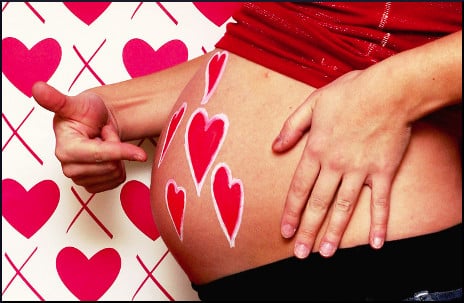 Some of the things mothers are blamed for may not, strictly speaking, be their fault. For instance, children of single mothers are more likely to develop obesity, but often, single motherhood is not a choice on the woman’s part. Another condition that a mother might experience, through no fault of her own, is PTSS or post-traumatic stress symptoms. PTSS is often used as shorthand for the distress felt by a parent whose child is damaged by a trauma that the parent did not personally experience.
Some of the things mothers are blamed for may not, strictly speaking, be their fault. For instance, children of single mothers are more likely to develop obesity, but often, single motherhood is not a choice on the woman’s part. Another condition that a mother might experience, through no fault of her own, is PTSS or post-traumatic stress symptoms. PTSS is often used as shorthand for the distress felt by a parent whose child is damaged by a trauma that the parent did not personally experience.
It’s kind of like second-hand trauma, to which, historically and understandably, mothers are more susceptible than fathers. Naturally, even family members who did not experience an event are inextricably involved with its aftermath, and are filled with anxiety. For instance, when a child is an accident victim or undergoes a surgical procedure, parents are deeply affected. PTSS symptoms may include avoidance, hyperarousal, and re-experiencing. Kristi Wilsman writes,
PTSS in the parent is felt to impact a child through negative parental modeling, poor coping mechanisms and reactions to subsequent reminders of the trauma and stress.
Feeding Culture
A mother who is overweight or obese is more likely to have an obese child, and very often the mother’s weight is a function of her cultural background.
The University of North Carolina-Chapel Hill School of Medicine was the scene of a study whose lead author is Dr. Eliana Perrin, pediatrician, and professor. The team interviewed 963 parents, mostly mothers, about their infant-feeding practices.
They found that many mothers are not following the recommendation of the American Academy of Pediatricians to keep a baby exclusively on breast milk for the first six months, although there are indications that sticking to that limited diet can indeed reduce childhood obesity. Additional bad news:
More than one third of parents reported coaxing their babies to finish drinking bottles, and nearly a quarter propped bottles in their infants’ cribs or bassinets. Nearly half the parents reported watching television while feeding their infants, and 43% reported putting their babies to bed with a bottle.
All Ethnicities Affected
The researchers found no ethnic or racial group to be free of bad habits, and concluded that all families need early counseling, whatever their background. Among other things, this counseling would consist of advising parents to talk and play with babies, rather than zoning out with the television. Also, it’s a good idea to pay attention when a baby seems to have had enough, and not persuade the child to take more. And try to always hold the baby, rather than propping the bottle. Aside from overfeeding, the other potential dangers of that habit include choking, tooth decay, and ear infections.
A German university’s meta-study, involving 66 relevant studies that encompassed more than 640,000 individuals in 26 countries, shows that a birth weight of more than about 8.8 pounds will double a child’s risk of becoming overweight. A prospective mother is wise to avoid overnutrition, overweight, lack of exercise, and the metabolic disorders that accrue from those lifestyle choices. Professor Andreas Plagemann said:
Even more than before, the course of pregnancy is proving to be the key factor for the health of the child for its whole life.
Your responses and feedback are welcome!
Source: “Development of the Posttraumatic Stress Symptoms — Childhood Obesity Model,” WKU.edu, August 2012.
Source: “Cultural Practices May Cause Weight Gain in Babies,” Health24.com, 03/19/14.
Source: “Yeah, That’s Right. Your Mom Is the Reason You Are Fat,” vresp.com, 01/10/13.
Image by Karine.

 FAQs and Media Requests:
FAQs and Media Requests: 











